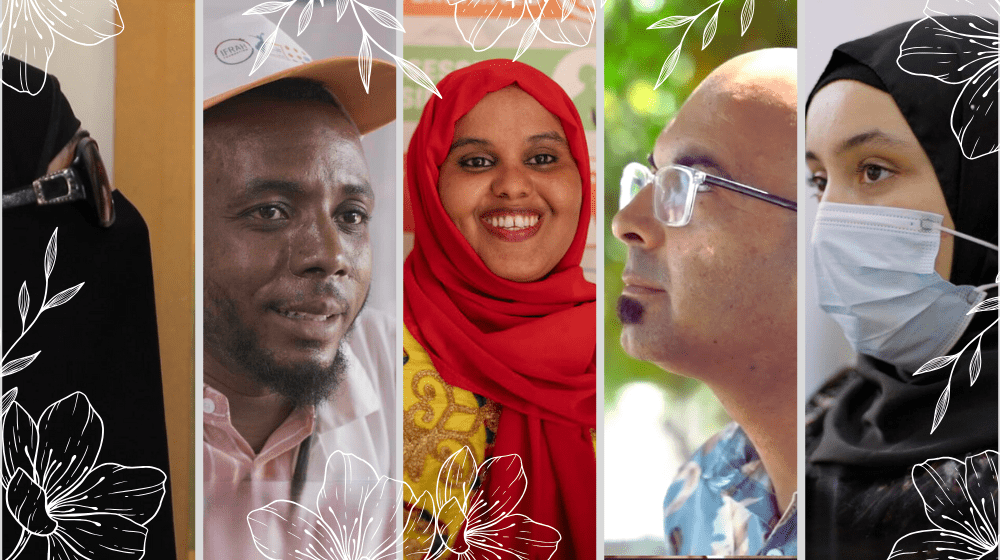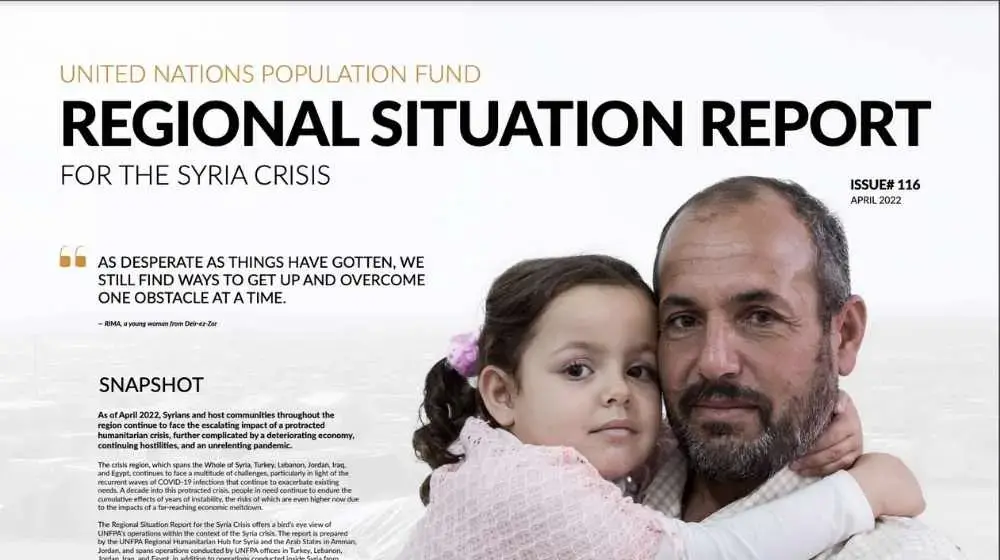“I lost the will to live,” says Amina*, a Syrian refugee and mother of four living in Lebanon. “But the social worker told me I was still young, and that I had many more things to do in life.”
After suffering violence at the hands of her husband for refusing to have more children, Amina* reached out to social workers at UNFPA-supported women friendly space – one of many safe havens for women and girls in Lebanon.
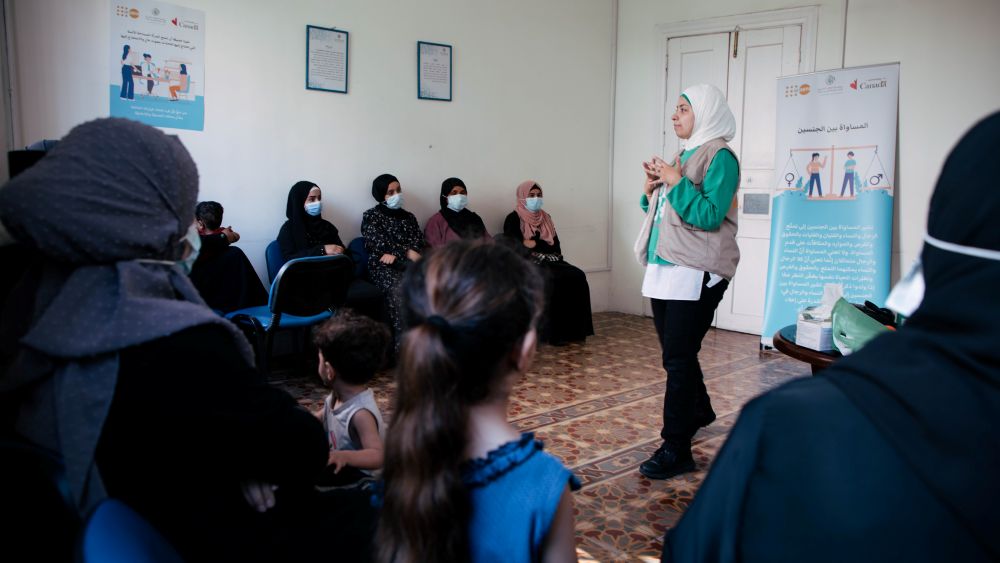
Amina attended classes, built up her confidence, and learned about her rights.
“Everything I learned at these sessions was new to me, and I learned that I have the right to express my opinion.”
Gender-based violence is one of the most prevalent human rights violations in the world, with around one in three women experiencing some form of violence in their lifetimes.
Violence against women and girls can spike in crises, and in the worst-affected areas in the Arab region, nearly two thirds of women and girls report suffering violence in their lifetimes.
UNFPA supports comprehensive, survivor-centred responses including quality health, social and legal services, and supports women-friendly spaces that offer crucial services to refugees and other women and girls.
“I’m always keen to visit the centre and I feel confident and well supported here,” says Amina*.
Breaking barriers
“I got married when I was just 13,” says Samah in Syria. “It was really hard because I took on all the responsibility for our children and our home. I was distressed, and I was still a child myself.”
Child marriage robs girls of their childhoods, dreams and futures, and it puts their health at risk. Yet despite progress in reducing the prevalence of this human rights violation, one in five girls in the Arab region still marry before age 18.
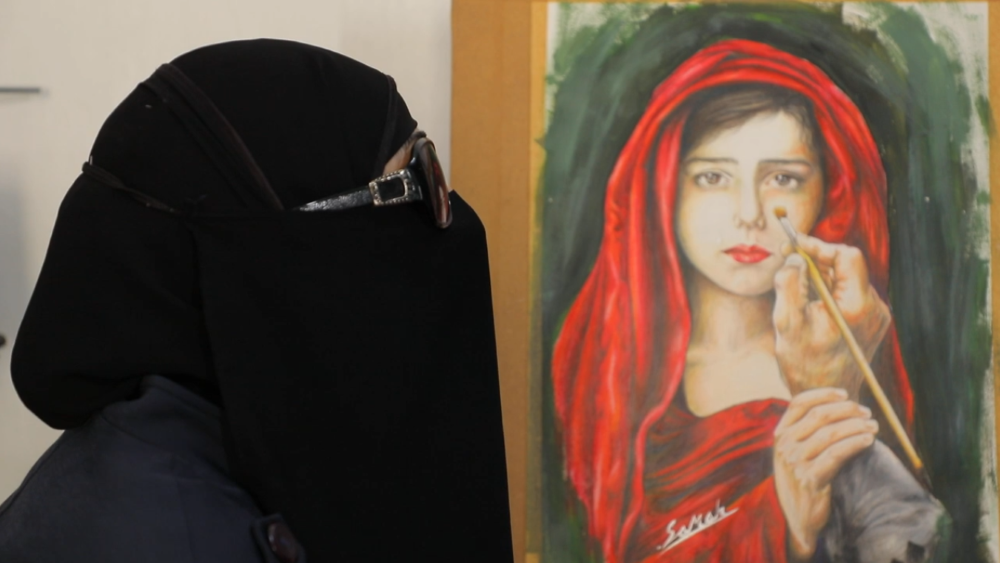
“I felt worthless at home. I had no rights,” says Samah, who sought help from a UNFPA-supported women and girls safe space in Syria.
“After they heard my story and learned of my talent for painting, I was enrolled in the empowerment course. I managed to finish school and passed the baccalaureate exam, but I was always passionate about painting and I wanted to study fine art. I passed the university entrance exam and started studying.”
Samah went on to gain a first class honours degree in fine art from Damascus University.
“I feel stronger and more independent now,” she says. She wants the next generation of girls to know they can achieve their dreams, too. “I want my daughters to finish school and I won’t allow anyone to stop them from getting an education.”
Men play a crucial role
Fathers, men and boys also have a crucial role to play in preventing child marriage, and in Jerusalem, Abdel Salam As’ad, 41, is determined to ensure his daughters get a good start in life.
“My wife and I married early, and I don’t want my daughters to go through that,” he says.
As’ad participated in the UNFPA-supported Brave Men programme that works to educate parents, men and boys on positive parenting skills, positive masculinity and building better relationships.
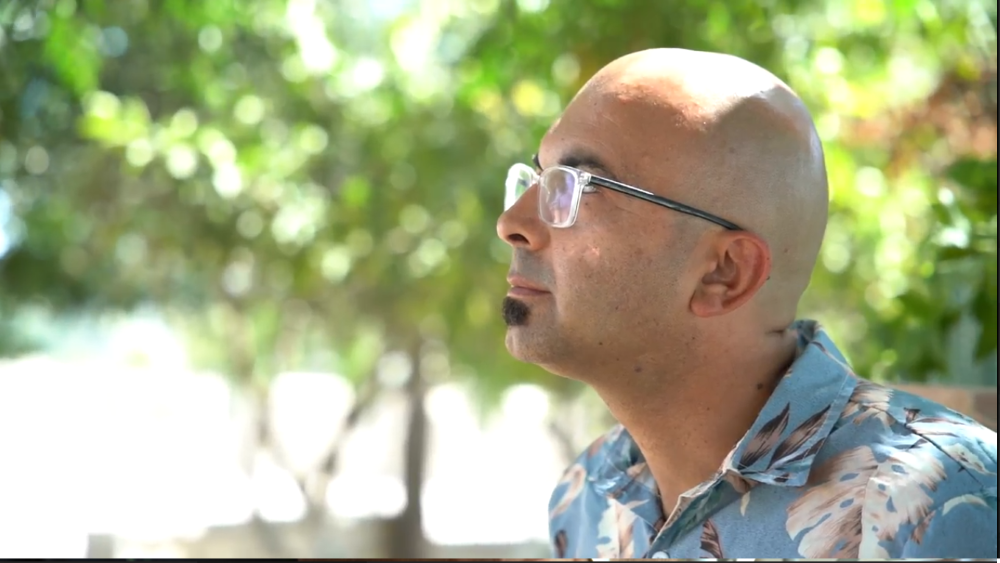
The programme has reached nearly 6,000 men and adolescent boys in Palestine so far.
“My daughters have to go through many experiences, then they can make their own choices and plan their own futures. Education is the most important thing for their future,” says As’ad.
Powering change
“A world without female genital mutilation will be a world without suffering, pain, fear and shame,” says Fathia, a UNFPA-supported educator in Djibouti who works to end the practice.
Despite progress in reducing the harmful practice, around 50 million girls in the Arab region have suffered female genital mutilation.
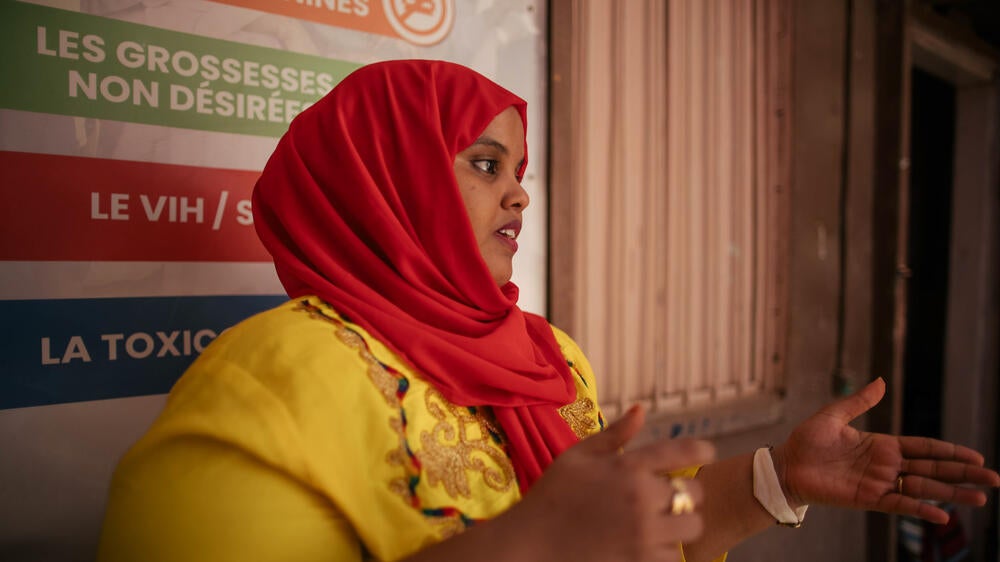
In Djibouti, more than 70 per cent of women between ages 15 and 49 are cut. Yet thanks to advocacy and outreach like Fathia’s, this has dropped from a high point of 93 per cent.
“I chose to be a teacher to help young girls. I made this choice because I saw that when my sisters [who were cut] had their periods they suffered much more pain than me,” Fathia says.
In Somalia, nearly 99 per cent of girls between 5 and 11 years old report being cut.
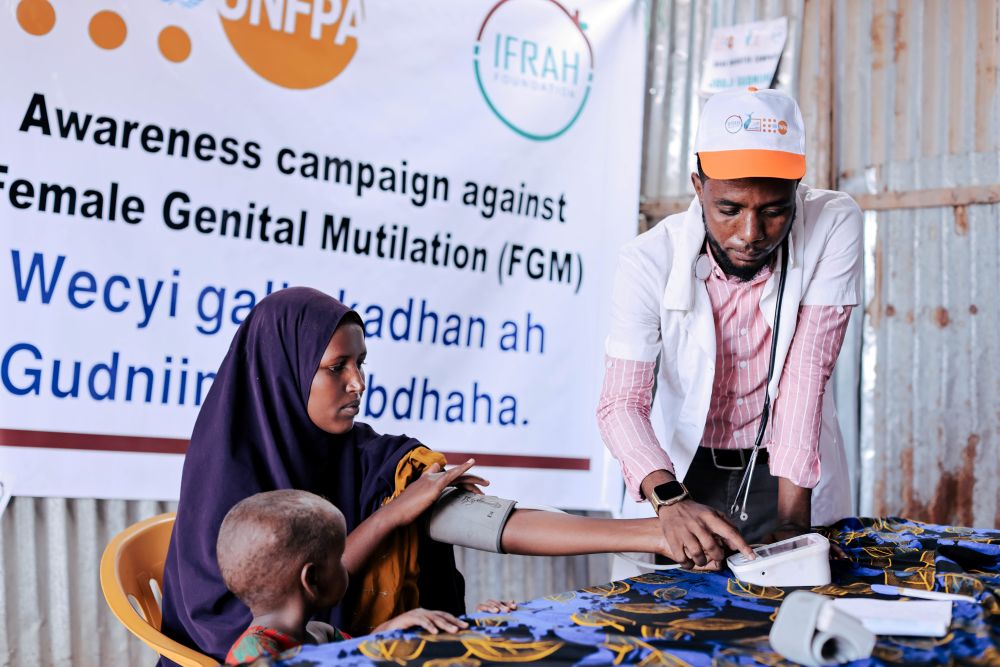
“I used to think that if a girl is not circumcised she doesn’t belong in Somalia,” says Dr. Shuceyb Abdikadir Ali, who once administered female genital mutilation but now advocates against it with UNFPA support.
“I’m a doctor and my goal is to end this harmful practice.”
Pivotal moment
This year, 2024 marks 30 years since governments from around the world adopted the transformative Programme of Action at the International Conference on Population and Development, held in Cairo
The agreement – which drew a clear connection between sexual and reproductive health and reproductive rights, gender equality and overall economic development – remains crucial for achieving the 2030 Agenda for Sustainable Development.
In countries where women and girls are prioritized, remarkable strides have been made toward building more robust, healthier and resilient communities. To fulfil the promise of peace, prosperity, and sustainable development for all, we must redouble our efforts to support the rights and welfare of women and girls.
*Names changed for privacy and protection

